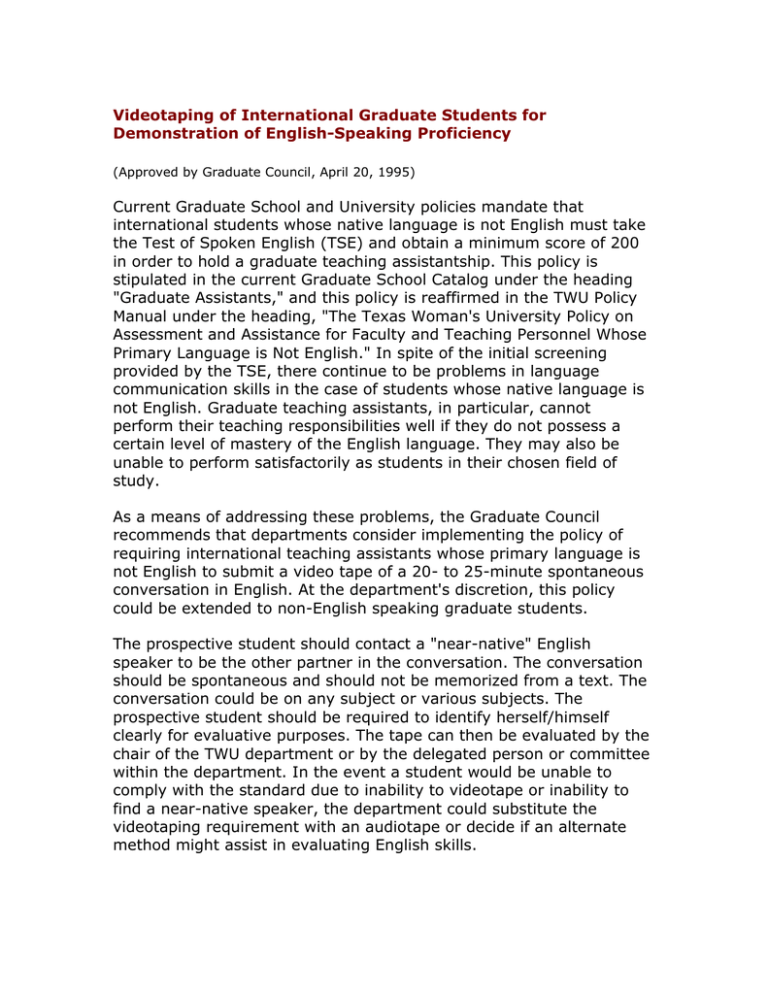Videotaping of International Graduate Students for Demonstration of English-Speaking Proficiency
advertisement

Videotaping of International Graduate Students for Demonstration of English-Speaking Proficiency (Approved by Graduate Council, April 20, 1995) Current Graduate School and University policies mandate that international students whose native language is not English must take the Test of Spoken English (TSE) and obtain a minimum score of 200 in order to hold a graduate teaching assistantship. This policy is stipulated in the current Graduate School Catalog under the heading "Graduate Assistants," and this policy is reaffirmed in the TWU Policy Manual under the heading, "The Texas Woman's University Policy on Assessment and Assistance for Faculty and Teaching Personnel Whose Primary Language is Not English." In spite of the initial screening provided by the TSE, there continue to be problems in language communication skills in the case of students whose native language is not English. Graduate teaching assistants, in particular, cannot perform their teaching responsibilities well if they do not possess a certain level of mastery of the English language. They may also be unable to perform satisfactorily as students in their chosen field of study. As a means of addressing these problems, the Graduate Council recommends that departments consider implementing the policy of requiring international teaching assistants whose primary language is not English to submit a video tape of a 20- to 25-minute spontaneous conversation in English. At the department's discretion, this policy could be extended to non-English speaking graduate students. The prospective student should contact a "near-native" English speaker to be the other partner in the conversation. The conversation should be spontaneous and should not be memorized from a text. The conversation could be on any subject or various subjects. The prospective student should be required to identify herself/himself clearly for evaluative purposes. The tape can then be evaluated by the chair of the TWU department or by the delegated person or committee within the department. In the event a student would be unable to comply with the standard due to inability to videotape or inability to find a near-native speaker, the department could substitute the videotaping requirement with an audiotape or decide if an alternate method might assist in evaluating English skills. The adoption of the recommendation would further help departments in their selection process and would avoid the practical and ethical dilemmas associated with having international students on campus whose language-speaking skills make them unable to perform satisfactorily in their programs of study. It is recommended that this policy be piloted for one year and then evaluated for final adoption.

